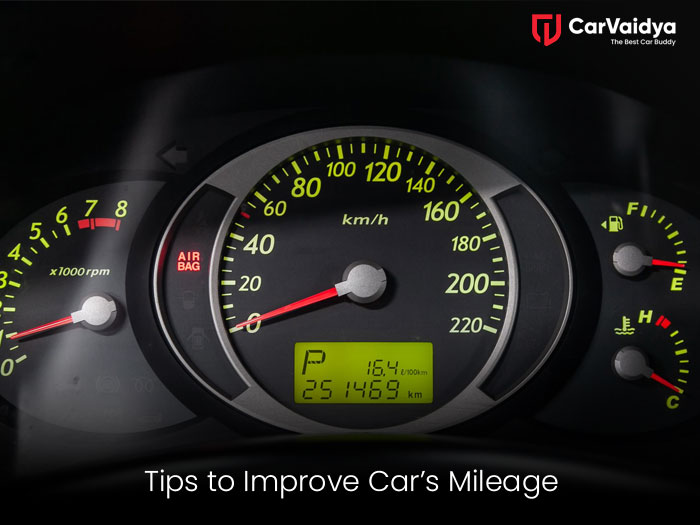Efficient fuel consumption is a concern for every car owner. With rising fuel prices and a growing emphasis on environmental sustainability, optimizing your car's mileage has become more important than ever. Fortunately, there are several simple and effective strategies you can employ to improve your vehicle's fuel efficiency. In this guide, we'll explore seven proven tips to help you get the most out of every gallon of fuel.
Maintain Your Vehicle
Regular maintenance is crucial for optimal fuel efficiency. Ensure that your car's engine is properly tuned, and all filters, such as air filters and fuel filters, are clean and in good condition. Replace worn-out spark plugs and maintain the correct tire pressure as specified in your owner's manual. A well-maintained vehicle operates more efficiently, resulting in better mileage.
Drive Smoothly
Aggressive driving behaviors such as rapid acceleration, hard braking, and speeding can significantly decrease fuel efficiency. To improve your car's mileage, practice smooth driving habits. Accelerate gradually, maintain a steady speed, and anticipate stops to avoid unnecessary braking. Driving smoothly not only conserves fuel but also reduces wear and tear on your vehicle.
Reduce Weight and Aerodynamic Drag
Excess weight and poor aerodynamics can negatively impact your car's fuel economy. Remove unnecessary items from your vehicle, as carrying around extra weight requires more fuel to move. Additionally, minimize aerodynamic drag by keeping windows closed at high speeds and removing roof racks or cargo carriers when not in use. Streamlining your vehicle's profile reduces the resistance it encounters, leading to improved mileage.
Use the Right Grade of Motor Oil
Choosing the correct motor oil viscosity recommended by your vehicle manufacturer can enhance fuel efficiency. High-quality synthetic oils with lower viscosity are designed to reduce friction and improve engine performance, resulting in better mileage. Consult your owner's manual or speak with a trusted mechanic to select the appropriate motor oil for your car.
Plan Your Trips Wisely
Consolidating errands and planning your routes can help minimize unnecessary driving and maximize fuel efficiency. Combine multiple errands into one trip to reduce the number of cold starts, which consume more fuel. Use navigation apps or GPS devices to find the most efficient routes with minimal traffic congestion and fewer stoplights. By optimizing your travel itinerary, you can save both time and fuel.
Embrace Eco-Driving Techniques
Eco-driving involves adopting driving techniques that prioritize fuel efficiency and minimize environmental impact. Some eco-driving practices include maintaining a moderate speed, coasting to decelerate whenever possible, and avoiding idling for extended periods. Utilize cruise control on highways to maintain a consistent speed and reduce fuel consumption. By embracing eco-friendly driving habits, you can achieve notable improvements in your car's mileage.
Monitor Fuel Consumption and Performance
Keep track of your vehicle's fuel consumption and performance over time to identify any changes or inefficiencies. Modern cars are equipped with onboard computer systems that provide real-time data on fuel economy, average speed, and trip duration. Use this information to adjust your driving habits and detect potential issues such as fuel leaks or mechanical problems early on. Regular monitoring allows you to take proactive measures to maintain optimal fuel efficiency.
Conclusion
Improving your car's mileage doesn't have to be complicated. By implementing these seven tips, you can maximize fuel efficiency, reduce your environmental footprint, and save money on fuel costs in the long run. Remember to prioritize regular maintenance, adopt smooth driving habits, minimize weight and aerodynamic drag, use the right motor oil, plan your trips wisely, embrace eco-driving techniques, and monitor fuel consumption and performance. With diligence and attention to detail, you can enjoy a more economical and environmentally friendly driving experience.
You Can Read Some Other Articles
NHAI’s one vehicle one FasTag program updates your KYC by January
The Importance’s and Functioning of ABS and EDS Safety Features in Car
Understanding the Significance of Drive Belts in Automobiles

